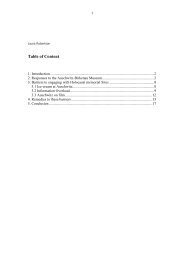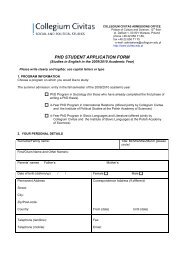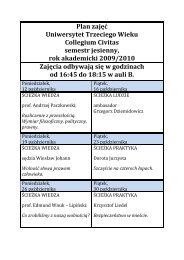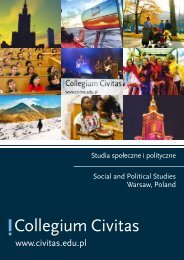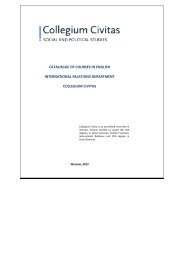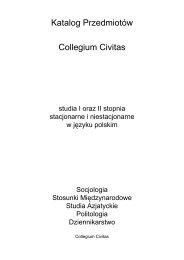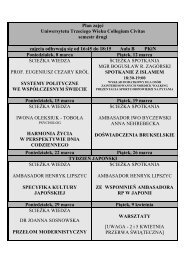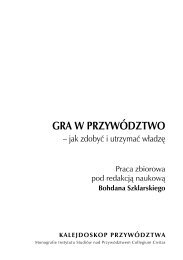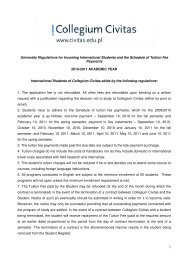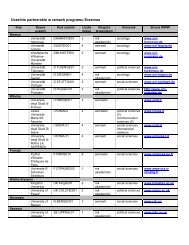Student Guide - University of Ottawa - International Office
Student Guide - University of Ottawa - International Office
Student Guide - University of Ottawa - International Office
Create successful ePaper yourself
Turn your PDF publications into a flip-book with our unique Google optimized e-Paper software.
PROGRAMS OF STUDY<br />
21<br />
Modules in Public Administration<br />
MODULES<br />
Outline <strong>of</strong> Module One:<br />
Modern Public Administration<br />
• Effective management: the logic<br />
<strong>of</strong> modern Public Administration<br />
The case-study approach: theory-guided<br />
reflections on practices<br />
Techniques in Public Administration:<br />
ways to achieve success<br />
• Getting things done: the logic(s)<br />
<strong>of</strong> organizations and <strong>of</strong> leaders<br />
• Being effective: how to organize yourself<br />
in organizations<br />
• Trends in European public administration<br />
• Challenges that the Polish bureaucracy<br />
faces<br />
• Bureaucracy between politics and civil<br />
society<br />
• Bureaucracy, law and economics<br />
• Learning organizations, multi-level<br />
government and the network society<br />
Outline <strong>of</strong> Module Two:<br />
Policy and Finance<br />
New Public Management, Quality Control,<br />
and Public Innovation in comparative European<br />
perspective. Lobbing. Comparative cases will<br />
include: Water Management in Europe, Social<br />
Security and the Future <strong>of</strong> the European Union,<br />
the Management <strong>of</strong> Health Care in Europe.<br />
Outline <strong>of</strong> Module Three:<br />
Human Resource Management<br />
The basic philosophy <strong>of</strong> MPA program is that<br />
it is the people in the administration that do<br />
the job, and that management is essentially<br />
facilitation. This module will present a wide array<br />
<strong>of</strong> comparative case studies (police forces,<br />
the HRM <strong>of</strong> the administrative elite, effective<br />
implementation <strong>of</strong> innovation, the introduction<br />
<strong>of</strong> European regulations) from a great variety<br />
<strong>of</strong> European countries.<br />
I completed an MA in <strong>International</strong> Relations at Collegium<br />
Civitas. Shortly thereafter I joined the foreign service. I work<br />
in the Economic Department <strong>of</strong> a Polish Embassy.<br />
The academic training I received by studying at Collegium<br />
Civitas was significant in preparing me for the post I currently<br />
hold, as some <strong>of</strong> the pr<strong>of</strong>essors had been Ambassadors<br />
and diplomats and provided comprehensive training. Additionally,<br />
the program was flexible and multidisciplinary, allowing<br />
me to choose my area <strong>of</strong> focus and tailor it to my needs.<br />
Hubert Życinski – Collegium Civitas graduate



